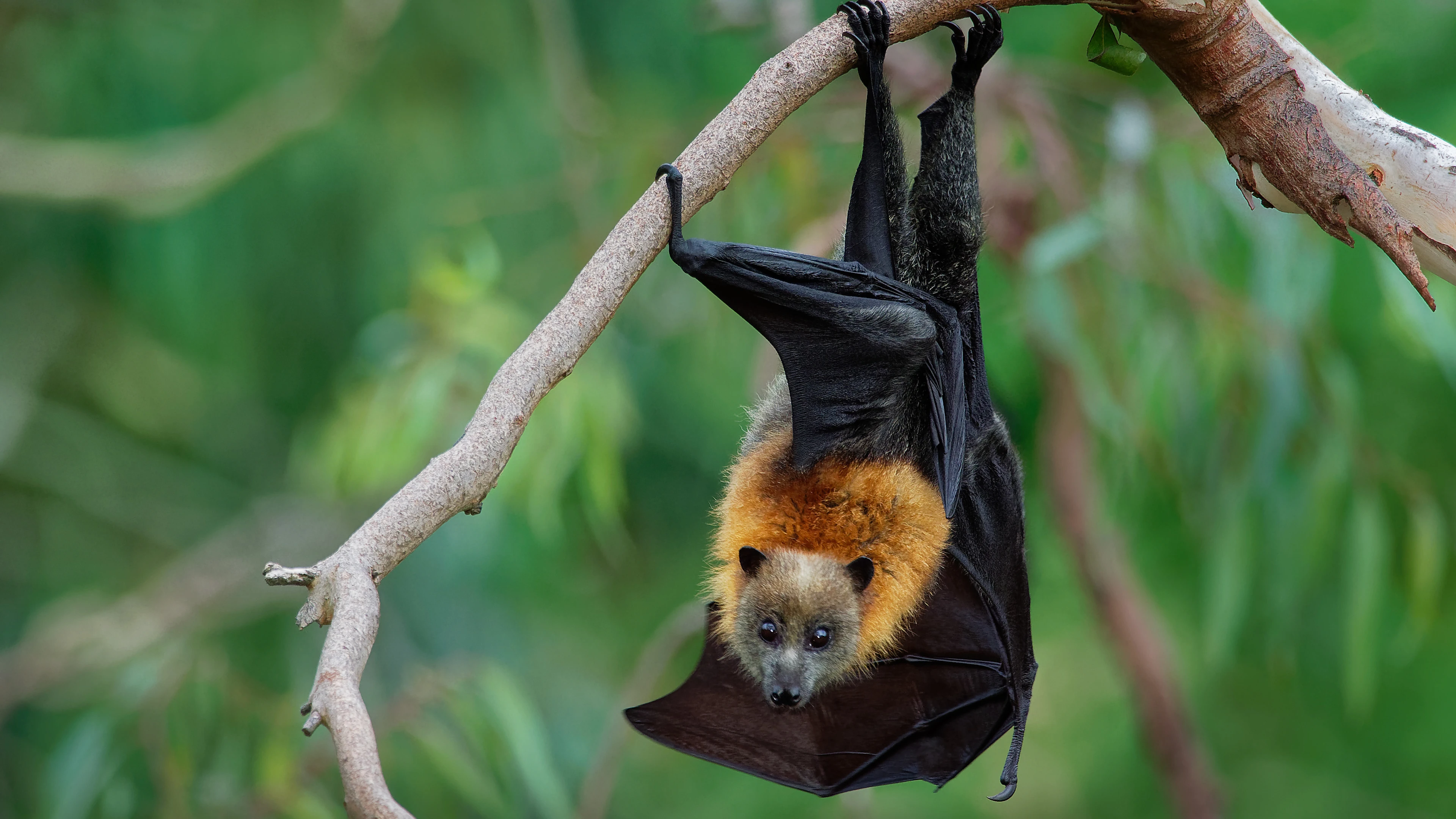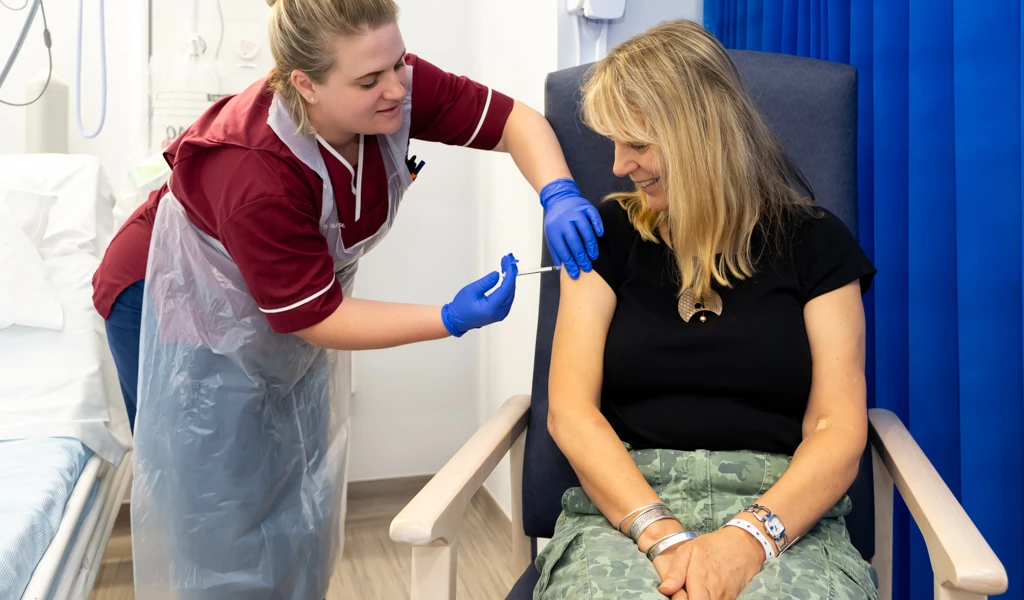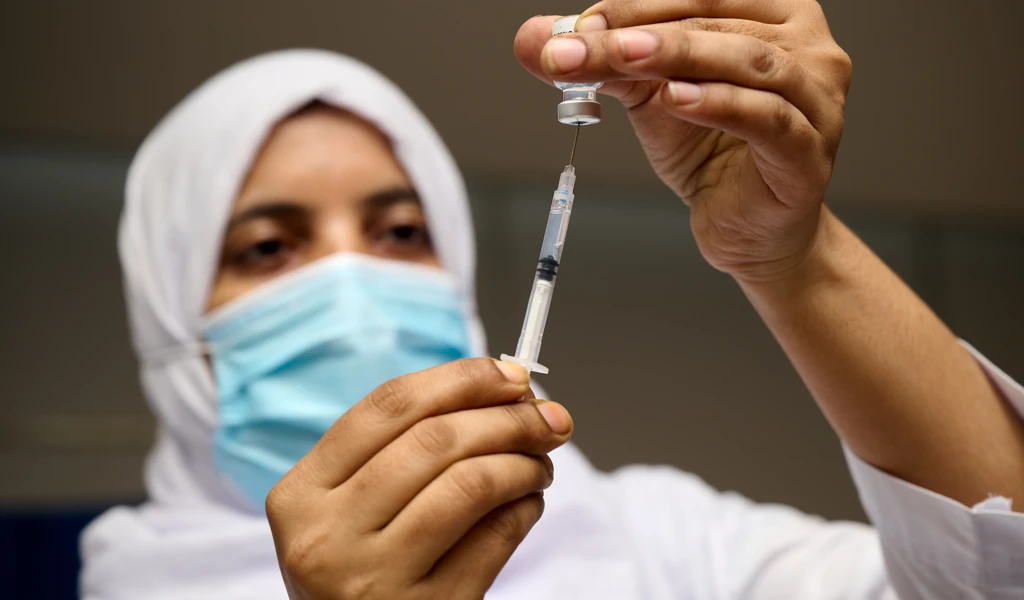CEPI will expand its partnership with icddr,b in Bangladesh, providing near to an additional $1 million in funding to advance understanding of the Nipah virus.
Nipah virus remains one of the deadliest infections known to infect humans, however no vaccines are currently licensed for use.
Research will also support the development of key tools needed for upcoming CEPI-supported and other Nipah vaccine clinical trials and potential future regulatory review.
Dhaka, Bangladesh and Oslo, Norway, 15 March 2022 — A new study, led by icddr,b (formerly known as International Centre for Diarrhoeal Disease Research, Bangladesh) and funded and supported by the Coalition for Epidemic Preparedness Innovations (CEPI), will work with some of the few survivors of the highly fatal Nipah infection to advance understanding of the body's response to the virus and support the development of much-needed Nipah vaccines. The announcement follows last week's Global Pandemic Preparedness Summit, co-hosted by CEPI and the UK Government, bringing together global leaders to unite behind CEPI's plan to better prepare for future epidemic and pandemic threats.
More than fifty Nipah survivors are set to take part in the pioneering research which aims to characterise the immune responses generated against the virus in response to previous Nipah outbreaks — and to explore how immunity changes over time. Securing this novel information could provide crucial input to guide the development of tools like diagnostic tests, treatments, and vaccines. The study will take place in Bangladesh, where outbreaks of the deadly virus have occurred on an annual basis since the start of the twenty-first century.
Up to US $980,000 will be provided by CEPI to support the research. CEPI is already running a similar partnership with Universiti Malaya to study Nipah survivors in Malaysia. The project with icddr,b will increase the number of survivors being studied while also documenting immunology data from survivors who may have been infected by different Nipah strains compared to those in Malaysia.
The road to a Nipah vaccine
In addition to advancing scientific understanding of the virus, the biological material donated by the survivors will be used to support the development of key research tools, like assays and antibody standards, needed for upcoming Phase II clinical trials of Nipah vaccines, currently scheduled to start in mid-to-late 2022.
CEPI's goal, announced as part of its US $3.5bn pandemic preparedness plan, is to advance R&D towards licensure of a Nipah vaccine. CEPI has to date invested up to US $100 million in four promising Nipah vaccine candidates, being developed by teams across academia and industry: Auro Vaccines and PATH, Public Health Vaccines, the University of Tokyo, and the University of Oxford. Programmes are progressing, with vaccine candidates developed by Auro Vaccines and PATH and Public Health Vaccines being the first in the world to reach in-human (Phase I) trials.
The assays and antibody standards—developed in coordination with scientists at the UK Medicines and Healthcare products Regulatory Agency (MHRA) with expertise in biological standards—will be made available to both CEPI-funded and other Nipah vaccine developers to progress their programmes. These tools are set to play a major role in supporting future regulatory review of Nipah vaccines, especially when late-stage efficacy trials may be difficult to conduct due to the sporadic nature of outbreaks.
CEPI's funding for the project will also support building local laboratory capacity in Bangladesh to prepare for clinical trials and new outbreaks of Nipah or other emerging infectious diseases. This furthers CEPI's aim to enhance and expand global collaboration through building a more robust and effective global preparedness and response architecture.
As the ongoing COVID-19 crisis shows, those who have tested positive for potentially deadly diseases can provide tremendous information to advance our understanding of how a virus operates and how the body responds to infection. Such data is also crucial to inform the development of lifesaving tools, like vaccines.
This new study with Bangladesh's world-leading scientific institution icddr,b will provide a wealth of important data and material to advance the development of much-needed Nipah vaccines and potentially support their future licensure. We'd also like to recognise and thank the Nipah survivors taking part in this important research to advance epidemic preparedness and protect regions vulnerable to this highly fatal threat.
icddr,b has over five decades of experience in vaccine research and contributed to the development and licensure of many vaccines, including cholera, typhoid, rotavirus, measles, polio, pneumonia, dengue, HPV among others.
In partnership with the Government of Bangladesh we are running the world's longest Nipah virus surveillance to detect the early stage of spillover, understanding the disease aetiology and transmission dynamics, and finding out ways to prevent infection.
We are extremely delighted to be a part of this great initiative of generating new knowledge and evidence that would lead to the development of a vaccine against the disease of pandemic potential and save lives.
I believe the collaboration will also further strengthen the work that we are doing in Bangladesh, and I am very grateful to CEPI for this opportunity.
The collaboration with icddr,b is hugely important in obtaining source materials from Nipah survivors for the production of a WHO International Standard and other reference materials. These materials are often difficult to collect, and this is especially the case here.
The standards are critical for the development of assays for the accurate measurement of the immune responses to the candidate Nipah vaccines. Therefore this initiative is an important step towards Nipah vaccine development which will protect at risk populations, and we look forward to working with icddr,b on this key enabling project.
A deadly viral threat
Nipah virus is one of the deadliest pathogens known to infect humans. A member of the Paramyxovirus family, the virus is spread to people by interaction with Pteropus bats (flying foxes)—the natural hosts of the virus—as well as infected pigs, infected humans, or through contaminated food like bat-bitten fruit or date palm sap. It causes rapidly progressive illness, affecting the respiratory system and the central nervous system, and has a case fatality rate estimated at 40 to 75%.
Since its identification in 1998/1999 in Malaysia and Singapore, the virus has gone on to result in sporadic and unpredictable outbreaks in Bangladesh, India, and the Philippines — a region spanning thousands of kilometres. With Pteropus bats found across regions of Africa, South Asia and Oceania that are home to more than two billion people, there is also concern that outbreaks could affect further areas in the future.
There is also concern that the world should be prepared for a future virus within the Paramyxovirus family that could have the fatality rate of Nipah virus combined with the transmissibility of measles, another member of the viral family.
ENDS
Notes to Editors
CEPI's work on Nipah
Findings generated through the research will be shared through open-access publications and via scientific meetings with vaccine developers (including both CEPI-funded and non-CEPI funded developers) to ensure all can benefit from the research.
Further information on CEPI's work on Nipah is available here. CEPI's landscape review of current Nipah medical countermeasures, published January 2022, is available to read in The Lancet Infectious Diseases.
About CEPI
CEPI is an innovative partnership between public, private, philanthropic, and civil organisations, launched at Davos in 2017, to develop vaccines against future epidemics. Prior to COVID-19, CEPI's work focused on developing vaccines against the Ebola Virus Disease, Lassa virus, Middle East Respiratory Syndrome coronavirus, Nipah virus, Rift Valley Fever virus and Chikungunya virus. It has over 20 vaccine candidates against these pathogens in development. CEPI has also invested in new platform technologies for rapid vaccine development against unknown pathogens (Disease X).
During the current pandemic, CEPI initiated multiple programmes to develop vaccines against SARS-CoV-2 and its variants with a focus on speed, scale, and access. These programmes leverage the rapid response platforms developed by CEPI's partners prior to the emergence of COVID-19, as well as new collaborations. The aim is to advance clinical development of a diverse portfolio of safe and effective COVID-19 candidates and to enable fair allocation of these vaccines worldwide through COVAX.
CEPI's 5-year plan lays out a $3.5 billion roadmap to compress vaccine development timelines to 100 days, develop a broadly protective vaccine against COVID-19 and other Betacoronaviruses, and create a "library" of vaccine candidates for use against known and unknown pathogens. The plan is available at www.endpandemics.cepi.net.
Follow our news page for the latest updates. Follow us via @CEPIvaccines, @DrRHatchett, and on LinkedIn.
About icddr,b
icddr,b formerly known as International Centre for Diarrhoeal Disease Research, Bangladesh is an international public health research institution based in Bangladesh. Established in 1960, icddr,b has been at the forefront of discovering low cost solutions to key public health challenges facing people in poverty and provides robust evidence of their effectiveness at a large scale. Instrumental in the development of oral rehydration therapy (ORT), icddr,b's research in this area has been credited with saving more than 70 million lives worldwide. From an early focus on cholera and diarrhoeal disease, the scope has expanded to encompass most of the global public health challenges.
Find out more at www.icddrb.org or follow us on Twitter @icddr_b
Media
CEPI
Email: [email protected]
Tel: +44 7387 055214
icddr,b
AKM Tariful Islam Khan
Senior Manager, Communications
Email: [email protected]
Tel: +88 017555 88128



